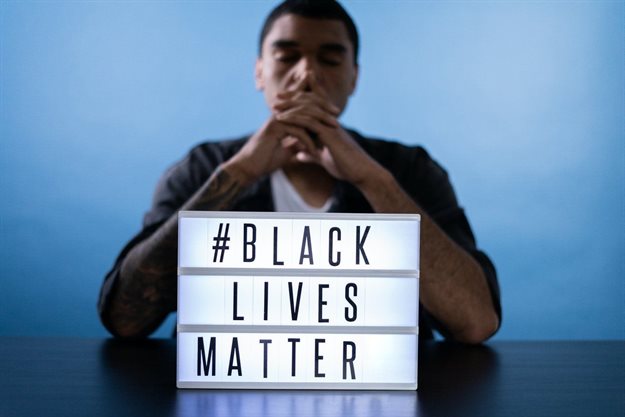Following the death of George Floyd in the USA, there has been increased global attention on the #BlackLivesMatter (BLM) Movement. Recently, we have witnessed various sporting codes encouraging those involved to take the knee before the commencement of an event in solidarity with the BLM Movement.

Photo by cottonbro from
PexelsBLM started in 2013 as a call to action to protest against violence that had been inflicted by the state in the USA against Black individuals. The concept of BLM has been adopted globally as a cause to eradicate racial inequality and any form of racism in all spheres, and this includes racism in the workplace.
It goes without saying that South Africa, as a nation, is still dealing with the racial injustices of the past which have been entrenched in society. Very often these injustices play themselves out in various ways in the workplace; whether it is lack of promotion or leadership opportunities, unequal pay, overt and/ or covert racism, etc. As a result, professionals from previously disadvantaged backgrounds find themselves fighting against racism, which is a form of discrimination, in the workplace two decades post democracy.
Section 5 of the Employment Equity Act (Act) places a positive duty on employers to eliminate unfair discrimination in the workplace. It provides that every employer must take steps to promote equal opportunity in the workplace by eliminating unfair discrimination in any employment policy or practice.
Section 6 of the Act provides that no person may unfairly discriminate, directly or indirectly, against an employee, in any employment policy or practice, on one or more grounds including race, ethnic or social origin, colour, culture, language and birth, among others.
Chief Justice Mogoeng in South African Revenue Service v CCMA & Others [2016] ZACC 38, a Constitutional Court judgment where an employee had been dismissed for racist conduct in the workplace, stated as follows at paragraphs 7 and 8:
The duty to eradicate racism and its tendencies has become all the more apparent, essential and urgent now. For this reason, nothing that threatens to take us back to our racist past should be glossed over, accommodated or excused. An outrage to racism should not be condescendingly branded as irrational or emotional. South Africans of all races have the shared responsibility to find ways to end racial hatred and its outstandingly bad outward manifestations.
Section 51 affords protection to individuals who seek to enforce their rights in terms of the Act. In this regard, employees have the right to refer unfair discrimination disputes against the employer to the CCMA once they have exhausted internal remedies available to them and are not satisfied with the steps taken by the employer.
In terms of section 60 of the Act, as soon as an employer becomes aware of any alleged racist or other discriminatory conduct by an employee, the employer must consult all relevant parties and must take the necessary steps to eliminate the alleged conduct. If the employer fails to take necessary steps, and it is proved that the employee has contravened any provision of the Act, the employer must be deemed to have contravened that provision.
It is therefore clear that employers are required to do everything in their power to eradicate any form of inequality and racism in the workplace. I submit that employers should be proactive in doing so.
Some of the proactive methods that have been implemented by employers include conducting anonymous surveys and work environment/ culture studies; and organising conversations in the workplace geared at listening and understanding and thereafter implementing solutions to improve issues highlighted in these discussions.
In my view, these measures assist only in equipping employers with knowledge; they do not assist in eradicating the problem. Employers need to embark on a journey that will see them taking steps towards achieving major unprecedented change.
It must be acknowledged and accepted that the status quo cannot remain in place. This change which will address inequality in the workplace needs to begin with senior management in organisations and infiltrate through to the rest of the organisations. Employers need to consciously take time to understand people’s historical backgrounds and perspectives as this has a bearing on their performance and ‘sense of belonging’ in the workplace. Employers must be intentional, patient and willing to invest time and money into addressing racism and inequality in the workplace.
May this heightened awareness of racism and inequality against Black lives result in more than eloquent speeches, tweets, and media campaigns. The time for real change is now and employers are in a prime position to take the lead in this regard.
#BlackLivesMatter









































